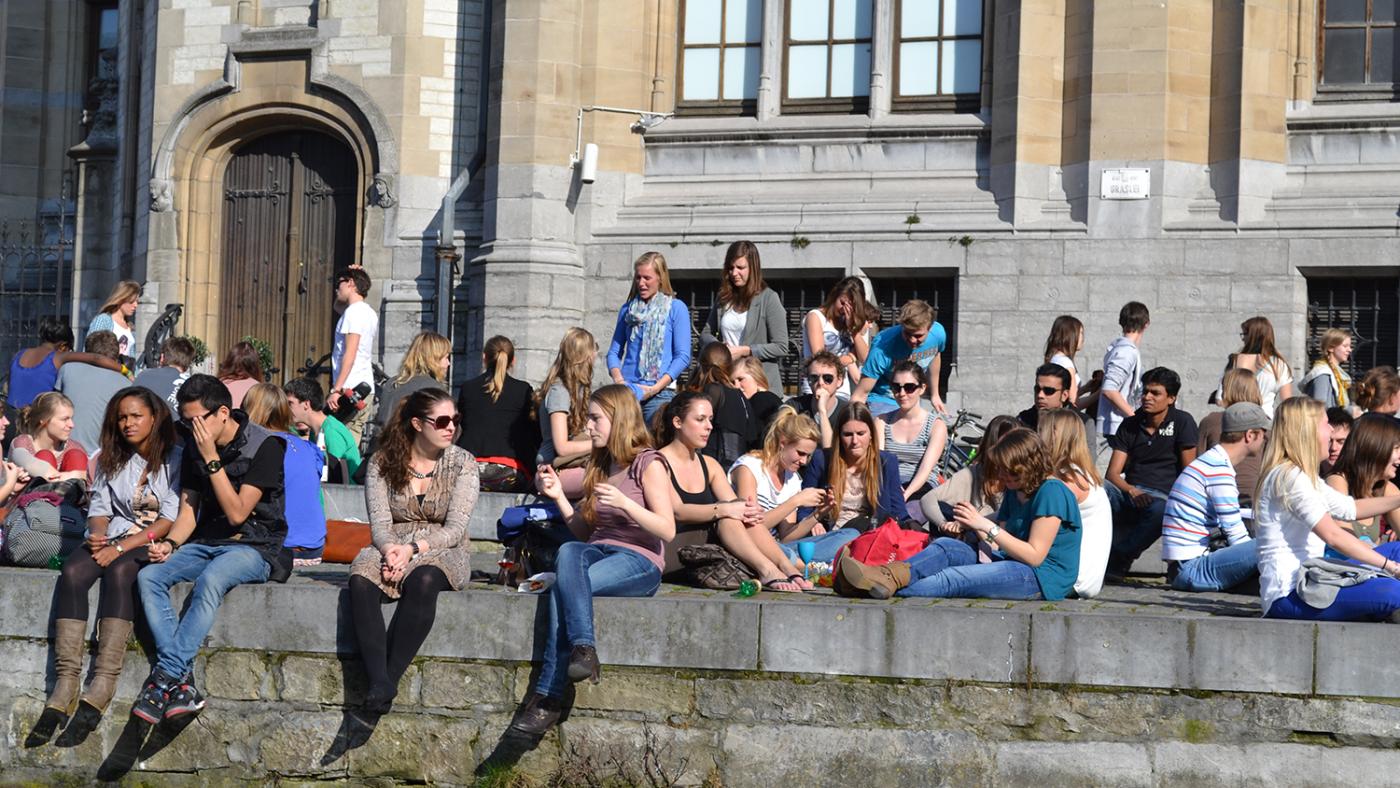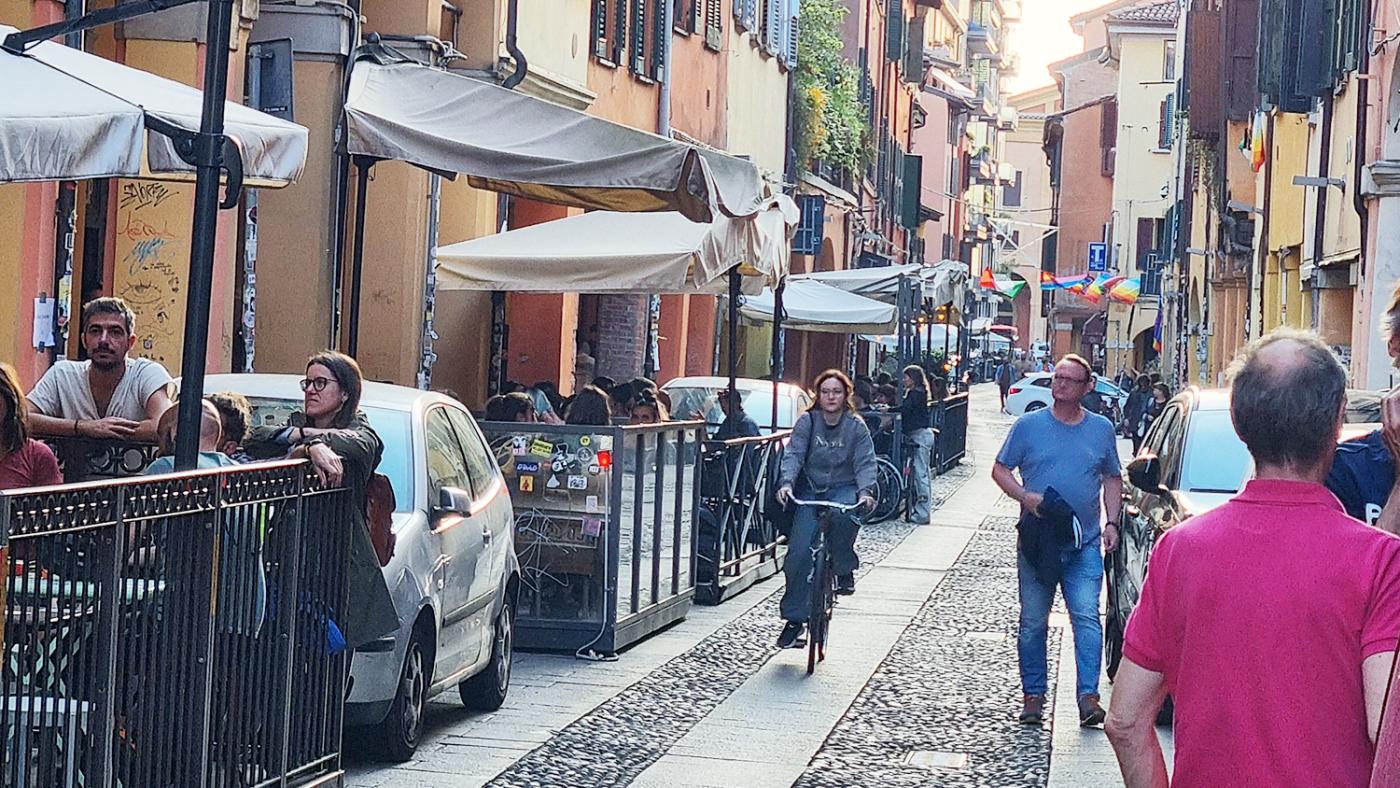Distribution of EU funds
UU students get hundreds of euros less to spend while on Erasmus exchange

‘I'm getting about 500 euros less than expected,’ says a student of Public Administration & Organisation Science. She will be studying in Rome until Christmas. Rome is an expensive city, so she was pleased about the prospect of receiving an Erasmus grant. She assumed she would get almost 400 euros per month.
‘However, in June, we received a rather brief and unclear email stating that the university was getting less money from the EU.’ It made her feel powerless. ‘To me, it was "free money", but there are students who really need the grant to be able to go abroad.’
Another student of Public Administration & Organisation Science, who is studying in Lisbon this semester, adds: ‘I thought that all Dutch students would receive less money, until I heard from a friend whose exchange in Oslo started a month earlier than mine that other Dutch students were getting an Eramus grant covering all months of exchange. It made me think: "What is going on here?"'
Setback
UU students who are going abroad this academic year will indeed receive much less money from the European Erasmus Fund than the students who went abroad in the last academic year. Last year, students were still entitled to six months of financial support, but this year they will only receive a maximum of 2.5 months.
This is a considerable setback for UU students going on exchange. A student going to a university in Western Europe for six months had counted on six times 390 euros, that is 2,340 euros. However, she is only receiving around 975 euros, a difference of almost 1,400 euros. Dutch students go abroad with an Erasmus grant for an average of four months.
No major protest
UU students who had registered before the July 1 deadline were informed by the university in early June that, most probably, only about 2.5 months could be awarded per student. The final decision was made at the beginning of July. The 620 students interested in studying at a foreign university and the 165 students looking to do an internship elsewhere in Europe would only be able to apply for a grant for a maximum of 77 days.
The message did not lead to any major protests in June and July. A total of five students asked for clarification, and one UCU student decided to cancel their stay abroad. Now that the exchanges have started, more reactions are coming, notes UU policy advisor Marieke Farchi. ‘Apparently, some students have missed our communication about this, for some reason or another.’
Farchi acknowledges that UU's contribution this year is low compared to other Dutch and European universities. ‘This is obviously not what we want. Our ambition is to provide the opportunity to study in Europe to as many students as possible. We know how enriching this experience is, both for the individual and for the programme. Going on an exchange should not depend on a student's financial situation. That's why we were shocked to hear how much money we would have available to distribute this year.’
Distribution key
This year, Utrecht University will receive 1.3 million euros for Erasmus exchanges, half a million euros less than last year, when the university got 1.8 million euros. Why? It's a rather technical story, but the bottom line is that the distribution mechanism has a negative impact on Utrecht University.
It works something like this: the National Agency Erasmus+ Education and Training (an arm of the Dutch organisation for the internationalisation of education, Nuffic) is responsible for distributing the money that the Netherlands receives from Brussels. This year, the country received a total of 47 million euros to support students studying or interning in another European country. This amount is also intended for staff exchanges.
This is 4 million euros more than last year, but the number of applications has also risen from 22,000 to 25,000. The total amount was already insufficient to provide all universities and universities of applied sciences with enough money to cover the grants for all students and staff for every month they spend abroad.
Nuffic uses a highly complex distribution formula to determine the amount of funding each institution receives. An important factor they consider is how much money universities have applied for in the past and how many students and staff from that institution actually went abroad.
This factor, known as past performance, is the primary issue causing problems for Utrecht University at present. Nuffic based its calculation on the years 2020 and 2022. Due to the Covid-19 pandemic, the 2021 figures from Dutch universities were not very realistic. As for 2022, the picture was positive for most institutions.
However, in UU's case, the figures for 2022 were not very promising. A relatively small number of scholarships were awarded in 2022, primarily because students were unable to travel abroad in 2021 due to the pandemic. Even so, UU had actually submitted a relatively large number of applications.
Farchi explains: "On Nuffic's advice, we then decided to administer part of the 2022 exchanges in 2021. That is allowed under the conditions. As a result, we submitted far fewer applications for 2022. We are surprised that Nuffic is now concluding, based on the 2022 benchmark, that UU has achieved too little mobility. This is actually due to their own advice." According to Farchi, UU tried to point out Nuffic's own role in the situation and change the organisation's mind, but to no avail.
In an email response, Nuffic states that it is customary to advise organisations to use up as much of the remaining budget from previous years as possible. It also points out that UU failed to fully utilise the lower number of applications for 2022, which had a negative impact on its past performance for that year. Besides, UU's situation is not unique. Universities in Amsterdam, Groningen and Eindhoven have also received considerably less money than requested this year. It is up to the universities to decide how to deal with this, says Nuffic. For example, universities can contribute additional funds themselves or award fewer scholarships.
The University of Amsterdam has announced that it will receive a significantly lower contribution from the European fund this year, despite the number of students applying for an exchange increasing. However, UvA has not contributed any of its own funds either. As a result, there is approximately 40 per cent less budget available per student. UvA has decided that all students will be reimbursed for 60 per cent of their stay, regardless of the duration of their stay abroad.

Bologna, Italy, a popular exchange destination. Photo: DUB
Side note
Farchi regrets that UU students will receive less financial support this year compared to students of many other Dutch universities. The university is not stepping in due to its own difficult financial position, which requires the university to reduce its spending by millions of euros.
The university briefly considered selecting or drawing lots for scholarships that covered the entire duration of the stay abroad. It also considered rejecting some of the applicants. ‘But on what criteria or considerations would we base that decision? We want everyone to have the opportunity to experience studying abroad.’
There is also a caveat: although the maximum number of months for which a scholarship is available is decreasing, UU students with an Erasmus scholarship will probably not receive much less on average this year than they did two years ago. This is because students have only been receiving travel allowances from Brussels for the past year. Farchi: “But I also understand that, as a current student, you don't make that comparison, so this remains a bitter pill to swallow.”
Mismatch
It remains to be seen how Nuffic's calculation will turn out next year. UU advocates a different distribution mechanism. ‘Everything is done according to the rules, but the system is flawed. Currently, they focus mainly on past performance, but for us, it's about the grants we need this academic year. There's a mismatch here. We must bend over backwards, and the students are the ones who suffer as a result.’
Nuffic argues that past performance is a mandatory criterion imposed by the EU, so it cannot be changed. Each year, the organisation also considers the best scenario for calculating the national distribution. This is submitted for approval to an independent assessment committee, which also includes representatives from the ministry. Institutions can also apply for or return additional funds on an annual basis. The first opportunity to do this is in June.
The two Public Administration & Organisation Science students say they find it difficult to determine whether the university should have made additional funds available for Erasmus students. In any case, they find it strange that students were only told so late how many months of grants were available for them. ‘The end of June is too late to change your plans. You've often already arranged a room and booked your trip, so you just carry on.’
In addition, they find that the explanation could have been more detailed. ‘We were left guessing as to the exact reason, and we didn't understand why other Dutch students received much more money.’
Questions in the University Council
The Lijst Vuur student faction has announced that it will be asking questions about this to the Executive Board. The faction says it understands the difficult financial position Utrecht University is in right now, but it is also concerned about the students who are receiving less money than they had expected. They also have questions about the communication with this group.
Faction chair Hermen Horzelenberg says he is particularly concerned that the lower grants will lead to inequality. ‘We know how enriching an exchange is for your studies, and access to this opportunity should not depend on your wallet or that of your parents.’
Comments
We appreciate relevant and respectful responses. Responding to DUB can be done by logging into the site. You can do so by creating a DUB account or by using your Solis ID. Comments that do not comply with our game rules will be deleted. Please read our response policy before responding.